ESS Topic 1 exam - Foundations of ESS
1/33
Earn XP
Description and Tags
Subtopics: 1.1 (Environmental Value Systems), 1.2 (Systems & Models), 1.3 (Energy & Equilibrium)
Name | Mastery | Learn | Test | Matching | Spaced | Call with Kai |
|---|
No analytics yet
Send a link to your students to track their progress
34 Terms
big ideas for 1.1
1) there is a spectrum of EVSs, each with its own premises and implications
2) historical events, among other influences, affect the development of EVSs and environmental history movements
Environmental Value System
a worldview that shapes the way people perceive and evaluate environmental issues (cultural, economic, & socio-political influences)
ecocentric
nature centered, holistic + sustainable worldview, minimum disturbance of nature - deep and soft ecologists
anthropocentric
people/human-centered, humans are responsible for sustainable global systems through control of population + resource use - environmental managers
technocentric
technology centered, tech provides solutions for any environmental issues - cornucopia (mankind can find themselves out of any issue)

environmental value system + spectrum of EVS
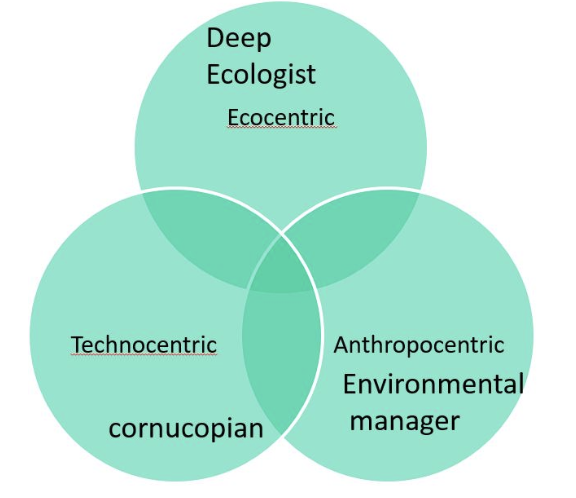
intrinsic value
inward value of nature regardless of its practical (economic) use to humans (ethical, spiritual, philosophical)
environmental history movement
big ideas for 1.2
1) A systems approach can help in the study of complex environmental issues
2) The use of systems and models simplifies interactions but may provide a more holistic view without reducing issues to single processes
reductionist
look @ indiv. parts
hollistic
look @ whole
system
assemblage of parts and their relationship forms a function entirety w/inputs and outputs (ex. computers)
emergent properties
the whole can do things that the indiv. parts cannot
societal systems
value systems
economic systems
social systems
influenced by geographic location, religion, culture, etc
earth as a system
includes abiotic (non-living) & biotic (living) components
biosphere
atmosphere
hydrosphere
lithosphere
gaia hypothesis
earth functions as a single living global system w/homeostatic mechanisms (ex. temp, climate, ocean salinity, etc)
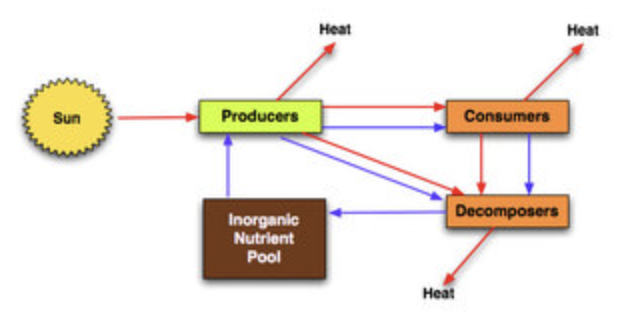
systems elements
inputs, symbol: arrows in →, described as: energy or matter that enters a system
outputs, symbol: arrows out ←, described as: something produced @ the end of a system
storages, symbol: box, described as: where energy/matter is accumulated
flows, symbol: arrows, described as: movement of energy/matter
boundaries, symbol: lines —, described as: outer limit of a system
* know how to draw these systems
* energy enters system as sunlight, matter cycles through
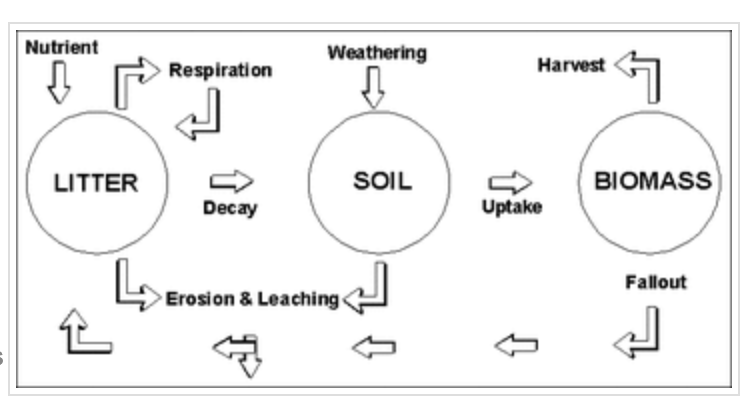
transformation
moves energy & matter, but in the process of doing so there is a change in state or form (ex. water → liquid → gas)
transfer
moves energy/matter from one place to another w/out changing it (ex. water flowing across land)
open system
system in which both materials + energy are exchanged across boundaries (mass in, mass out, energy in, energy out)
closed system
system where energy is exchanged across boundaries, but matter is not : RARE (approximation: global geochemical cycles like water cycle)
isolated system
no exchange of energy or material across system boundaries (only hypothetical)
models
simplified version of reality → used to understand how system works + predict
advantages:
predict & simplify complex systems
brings out patterns
inputs & outputs exchanged + examined w/out waiting for real events
disadvantages:
lack of detail/accuracy
rely on expertise of those making them
different interpretations possible
vested interests → political hijack
big ideas for 1.3
1)The laws of thermodynamics govern the flow of energy in a system and the ability to do work
2) Systems can exist in alternative stable states or as equilibria between which there are tipping points,
3) Destabilizing position feedback mechanisms will drive systems toward these tipping points, whereas stabilizing negative feedback mechanisms will resist such changes
first law of thermodynamics
energy cannot be created or destroyed; it can change from one form to another
all energy comes from sunlight
less energy at higher trophic levels
in open systems energy is constantly entering, but never increasing
second law of thermodynamics
when energy is being converted to one form from another, some of it is lost as heat: entropy (measure of how much is lost)
energy lost at each trophic level in a food chain is about 90%
higher trophic levels must consume more
steady-state equilibrium
maintains a steady state due to constant flow of inputs and outputs
ecological systems require inputs/outputs
static equilibrium
always in balance, no inputs/outputs, inanimate objects
doesn’t apply to natural systems
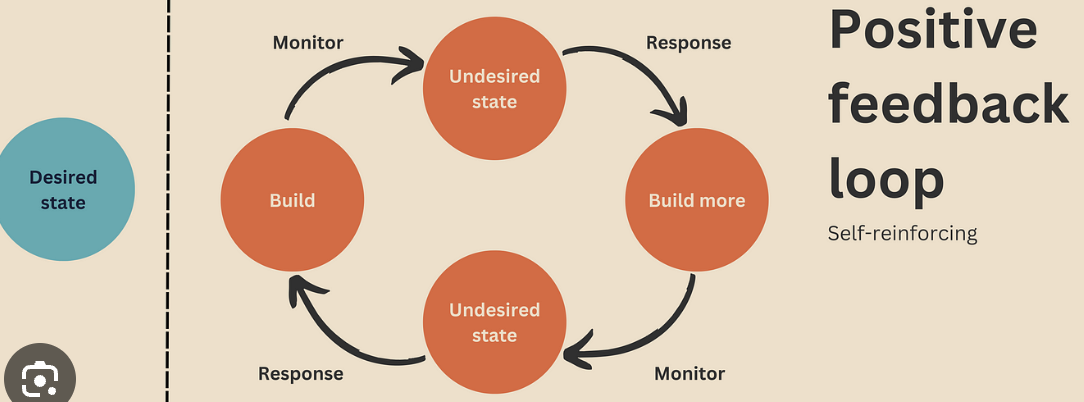
positive feedback loop
amplifies change → deviation from stability, diverges from equilibrium
removing forest amplifies erosion
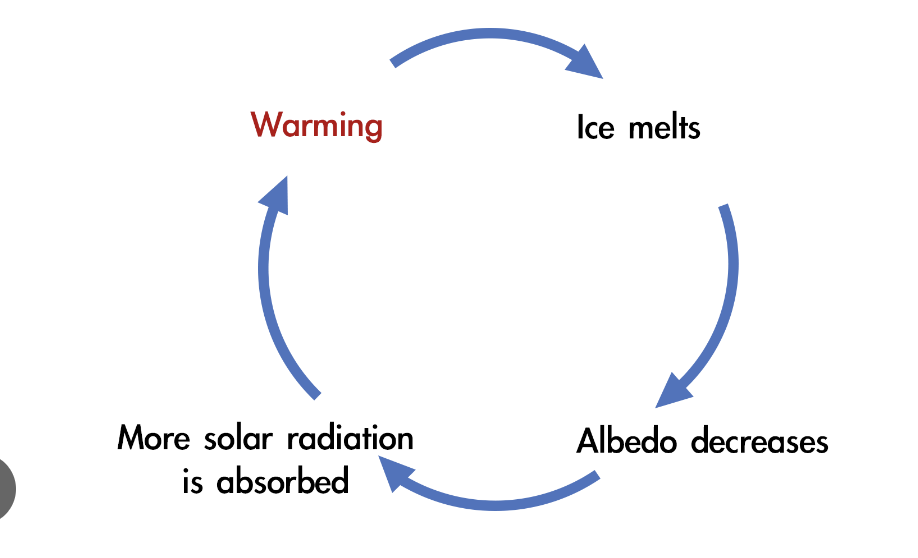
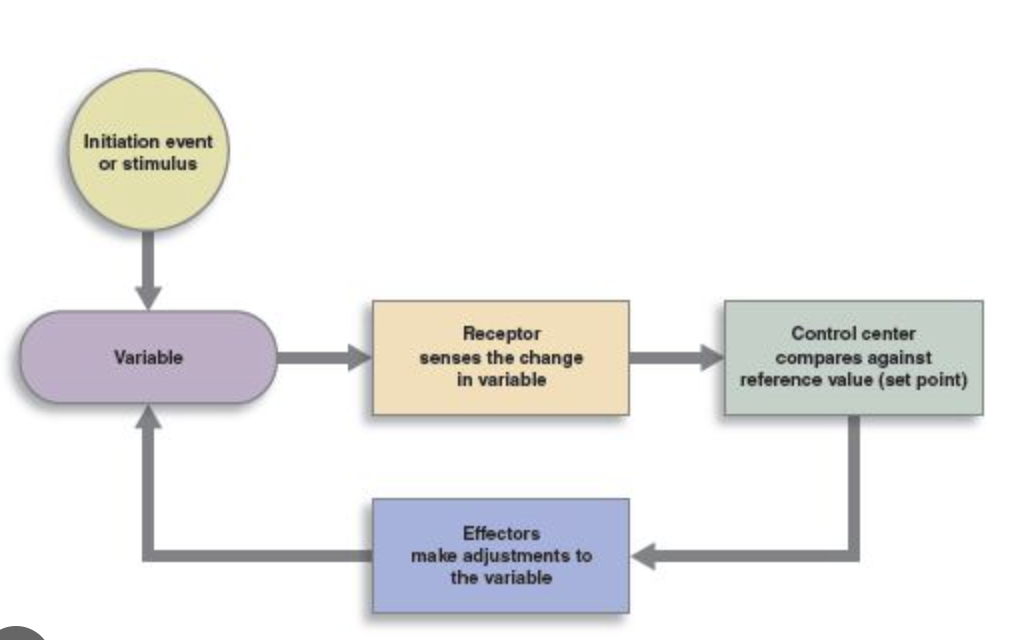
negative feedback loop
dampens effects and promotes return to stability
predator/prey relationships
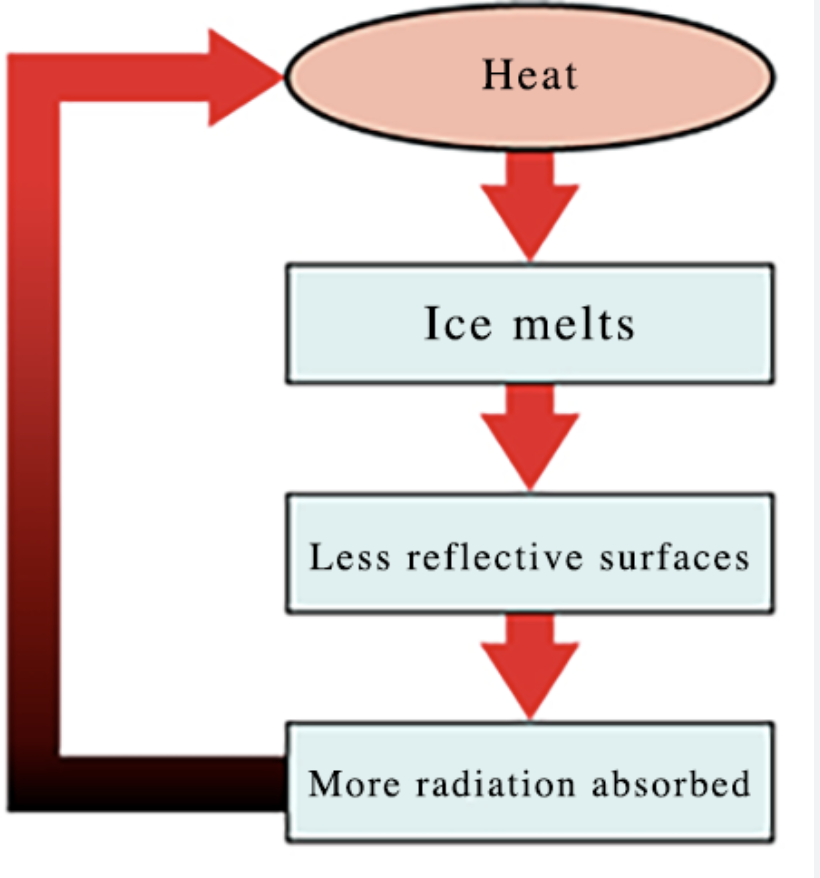
resilience
capacity of an ecosystem to respond to a disturbance (better w/more biodiversity, + alternate energy/matter pathways)
threshold
critical points at which the systems response and behavior changes abruptly (really hard to predict, changes hard to reverse)
push factor
what is moving it away from equilibrium
some important events during the environmental movement (make sure to know details about a couple)
Founding of IUCN (Oct. 5, 1948)
Minamata (1950s)
Rachel Carson’s Silent Spring Published (1962)
Bhopal (Dec. 3, 1984)
Chernobyl (April 26, 1986)